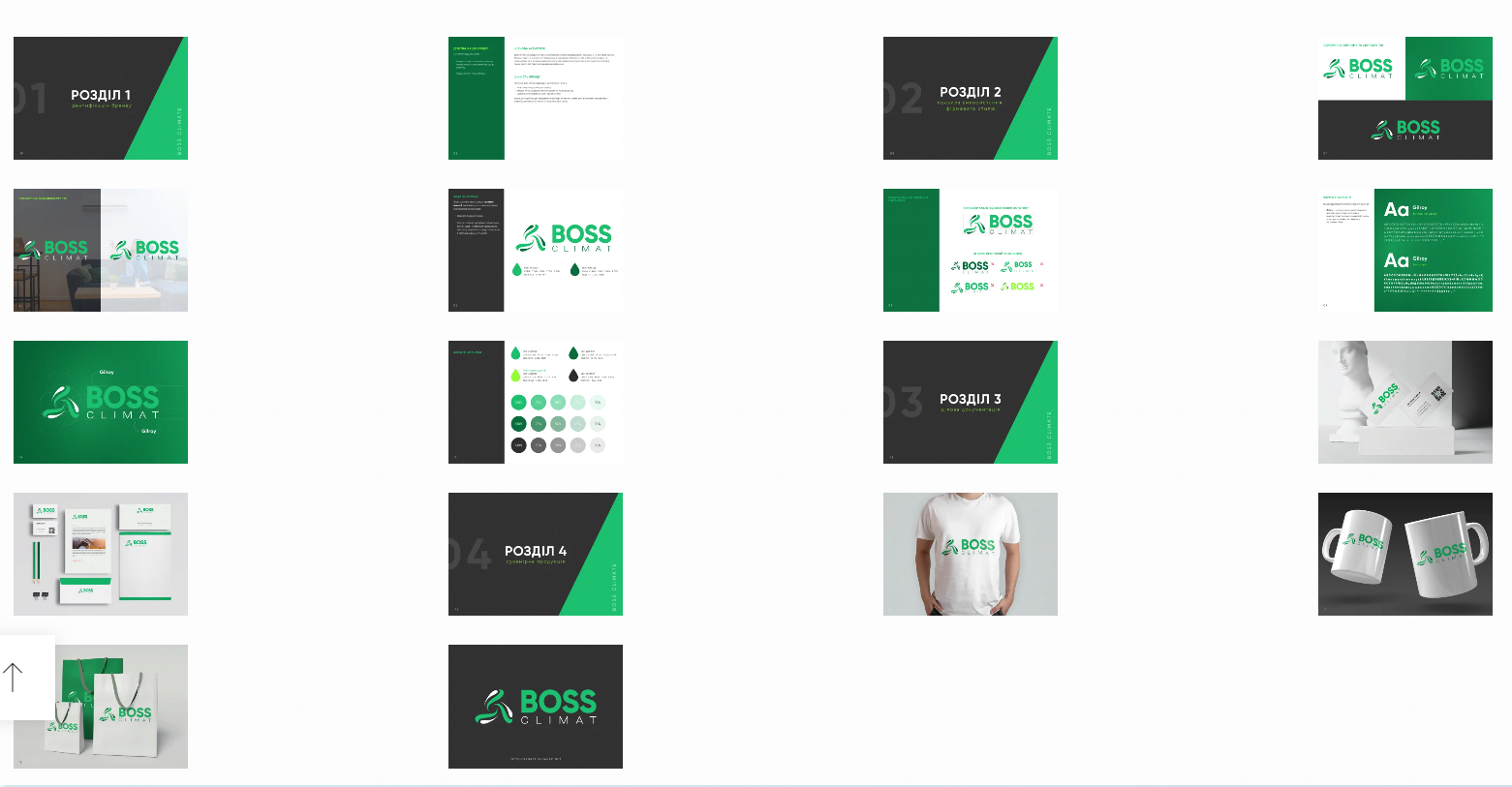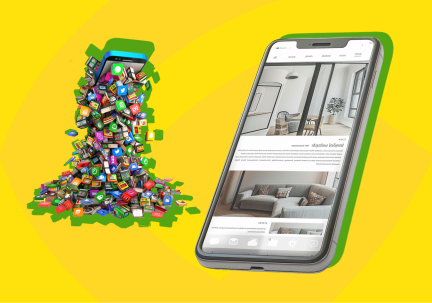Contextual advertising or search engine optimization: What to

The development of an online store has become more than an ordinary thing these days. Due to a number of problems in the online sales market, quarantine restrictions and many other factors affecting the popularity of this service, users increasingly began to turn to Internet resources in search of necessary goods.
There is always a supply for demand, and therefore many companies engaged in the sale of goods both at retail and wholesale rushed to conquer the Internet space, but not everything is so simple.
The development of an online store is a process that requires considerable financial investments and time, especially if an entrepreneur decides to develop a website on his own. Such events rarely end successfully, and therefore today we will consider the situation when you have already made the development of an online store to order from specialists – and plan a strategy for its promotion.
SEO and PPC are the two most popular and popular marketing channels at the moment. With the help of search engine optimization and contextual advertising, many corporations have repeatedly brought their sites to the top of search results, but what to turn to first?
Which of the marketing channels should be used primarily, and the launch of which channel can wait? In this article, we will analyze in detail all the strengths and weaknesses of these marketing channels, and at the end we will summarize the results and make the final choice, let's start!
Marketing channels and their task in promoting Internet resources
Before making a choice in favor of one of the marketing channels, first you need to decide what a marketing channel really is?
Marketing channels are the ways through which the products provided by the company find their buyer as quickly as possible. If we simplify this expression, we can come to the conclusion that in the field of promoting Internet resources, a marketing channel is a bridge that connects a representative of the target audience of the company with the company itself. With the help of marketing channels, companies offer their products to interested users, and those, in turn, depending on the relevance of the offer made by them and its quality, make a decision.
As a rule, when it comes to the effectiveness of marketing channels, the rule works: quality=result, but this ratio is not always applicable to sites. The fact is that for some niches, some marketing channels are better suited than others, and vice versa. This causes a lot of controversy on the world Wide Web, but there are marketing channels that are suitable for everyone.
SEO and PPC are marketing channels that have found application in any niche, regardless of what the Internet resource is engaged in. Whether an online store is being developed, or a corporate website is being created at the moment – the use of SEO and PPC is always justified, and the effectiveness of these promotion methods is rarely debatable. Despite this, it is difficult to achieve 100% efficiency from these marketing channels, due to their peculiarities.
Having launched an online store and taken up the development of a promotion strategy, entrepreneurs often have a choice, what to invest in first? Both marketing channels have proven themselves as reliable promotion tools, however, they work absolutely differently. In order to determine which marketing channel is the best among the proposed ones, it is necessary to carefully consider SEO and PPC.
SEO as the main marketing channel of an Internet resource: What search engine optimization is capable of and what are its disadvantages
Search engine optimization is a method of promotion that has been used for more than 10 years. Thanks to working with the system's algorithms and understanding exactly how they work, SEO shows excellent results.
But the use of SEO is not a panacea, and its effectiveness directly depends on the quality of the site, the fewer errors and problems on the website of an online store, the more likely it is that SEO optimization will bear fruit and the traffic indicator will grow.
Despite its popularity, SEO is not a utilitarian tool and requires certain conditions from the site owner for correct operation. For example, the site on which optimization is carried out should not have problems with the structure and design, and should also allow customers to get a high-quality user experience.
It is impossible to achieve such a result independently, especially if the entrepreneur has never had anything to do with the development of Internet resources.
In order to achieve maximum efficiency, you will need to order the creation of a website from specialists. The categorical nature of this requirement is explained by the fact that the development team, as a rule, includes specialists from different industries who, together with their knowledge and skills, can create a really high-quality resource for you.
Before ordering the creation of an online store, entrepreneurs often have a huge selection of companies to turn to. Every company strives to take its place, but if the goal of the company is an impeccable website – the best solution is to turn immediately to the leaders of the niche.
Gloss web studio has been creating Internet resources and promoting them for more than 12 years. There are already more than a thousand works in our company's portfolio, and we do not plan to stop there. By ordering the creation of an online store website in the Gloss web studio, you will receive impeccable quality in the shortest possible time. All this is possible thanks to the well-coordinated work of the team of specialists of our company.
If at the moment you need an Internet resource, and you are worried that the company you have chosen may not be able to cope with the task, contact the leader of the niche of creating web resources – the Gloss website creation studio.
In order to get acquainted with the work of our team and learn more about our organization, check out the menu. In the Gloss website menu, you can find all the pages that will give answers to the questions that interest you.
In order to order the development of an online store or order the creation of a turnkey corporate website, you just need to leave a request or call our office at the number published on the site pages.
SEO optimization has many advantages, but it also has disadvantages. In order to decide which marketing channel is better to use in the first place, it is necessary to understand in detail all aspects of SEO and contextual advertising. To do this, we will consider in detail the advantages and disadvantages of each individual marketing channel.
So, the advantages of search engine optimization in the current situation on the Internet trade market can be safely attributed:
1. The ability to stop funding and get a result
Due to the fact that search engine optimization is a work for the future – the results of such work are long-lasting.
After optimizing the content and pages of the online store, you can count on a constant flow of traffic, due to the fact that the materials published by you will be relevant to the interests of your target audience for a long time.
2. Low cost
Despite the fact that search engine optimization somehow requires funding – the cost of optimization is several times lower than that of its competitor in the face of RRS. To a greater extent, search engine optimization is based on site audit and the introduction of key queries – which makes it a fairly simple operation – which does not require a large team to work on the project.
This plus, according to many SEO supporters, is fundamental, since it makes search engine optimization an ideal option for startups and online stores – just starting their way on the Internet.
Despite its significant advantages, search engine optimization also has a number of disadvantages that can become critical for some niches and entrepreneurs. The disadvantages of search engine optimization are explained by its features, however, they directly affect the speed of promotion of an Internet resource and its effectiveness.
The list of disadvantages of SEO optimization is as follows:
1. Duration of the optimization effect
Whatever you say, the gap between site optimization and the moment when it starts to bring results is impressive. As a rule, in order for an optimized site to receive stable relevant traffic, it should take about 4-6 months, which in the conditions of fast-growing competition in all niches of online commerce can become a verdict for this method of promotion.
Not all companies are ready to wait so long to get a result, so entrepreneurs who are launching a business on the Internet for the first time often postpone the option of promotion using search engine optimization for a long time.
2. The cost in the future
Despite the fact that optimization itself is several times cheaper than maintaining the PPC, in the long term, traffic from search engine optimization can cost even more than contextual advertising. The thing is that the algorithms of search engines are constantly changing, and therefore sites after some time still require re-optimization.
Otherwise, search engine optimization is a universal marketing channel that is suitable for almost all niches. Due to its simplicity and the ability to conduct it even at the stage of developing an online store, large companies choose SEO as the first marketing channel to receive traffic from the world Wide Web.
SEO optimization is in great demand in the market of Internet resources promotion, but despite this, it often does not reach the popularity of contextual advertising. What is so special about this contextual advertising and why is it worth paying attention to? Let's figure it out.
Contextual advertising campaigns as the main method of attracting traffic: Strengths and weaknesses of the marketing channel
Contextual advertising, PPC or pay-per-click advertising-no matter what the name of this marketing channel is, no one will argue with its effectiveness.
Despite its significant advantages, search engine optimization also has a number of disadvantages that can become critical for some niches and entrepreneurs. The disadvantages of search engine optimization are explained by its features, however, they directly affect the speed of promotion of an Internet resource and its effectiveness.
The list of disadvantages of SEO optimization is as follows:
1. Duration of the optimization effect
Whatever you say, the gap between site optimization and the moment when it starts to bring results is impressive. As a rule, in order for an optimized site to receive stable relevant traffic, it should take about 4-6 months, which in the conditions of fast-growing competition in all niches of online commerce can become a verdict for this method of promotion.
Not all companies are ready to wait so long to get a result, so entrepreneurs who are launching a business on the Internet for the first time often postpone the option of promotion using search engine optimization for a long time.
2. The cost in the future
Despite the fact that optimization itself is several times cheaper than maintaining the PPC, in the long term, traffic from search engine optimization can cost even more than contextual advertising. The thing is that the algorithms of search engines are constantly changing, and therefore sites after some time still require re-optimization.
Otherwise, search engine optimization is a universal marketing channel that is suitable for almost all niches. Due to its simplicity and the ability to conduct it even at the stage of developing an online store, large companies choose SEO as the first marketing channel to receive traffic from the world Wide Web.
SEO optimization is in great demand in the market of Internet resources promotion, but despite this, it often does not reach the popularity of contextual advertising. What is so special about this contextual advertising and why is it worth paying attention to? Let's figure it out.
Contextual advertising campaigns as the main method of attracting traffic: Strengths and weaknesses of the marketing channel
Contextual advertising, PPC or pay-per-click advertising-no matter what the name of this marketing channel is, no one will argue with its effectiveness.
Thanks to the ability to constantly appear in the user's search results, as well as on sites with similar topics, RRS has confidently entered the world of promoting Internet resources. The only rival of the RRS for the championship in this niche is SEO, and we still have to choose which of these marketing channels is more successful.
Contextual advertising is a marketing channel that can bring a huge amount of traffic to the site in a short time. This is due to the fact that the RRS also uses search algorithms for its own purposes and is published exclusively where potential customers of the company are located.
Creating relevant ads is not an easy task, however, having coped with it, the site owner will be able to access a huge amount of traffic. The effectiveness of this method, as well as in the case of SEO, depends on the quality of the site. But in the case of RRS, this parameter is not so critical.
As for the advantages of contextual advertising, they include the following:
1. The speed of obtaining results
Unlike search engine optimization, which requires time from 2 months to six months for the published and optimized content to bring results – RRS works instantly. All that is necessary for a specialist and the site owner to do is to correctly configure this advertising and give the client an offer – which he will not want to refuse.
2. The effectiveness of this method
Due to the fact that contextual advertising can be published above even those sites that have reached the top, the effectiveness of this marketing channel is beyond any doubt. In addition, there are several types of contextual advertising, each of which in its own way can attract the target audience of the online store you recently created. With the help of the RRS, the user can instantly get the result, since the RRS does not require much time for potential customers to appear on the site. At the same time, the effectiveness of this method is somewhat higher than that of SEO, but in the case of RRS there are several pitfalls. The list of disadvantages of pay-per-click advertising can be safely attributed:
1. Cost
Long-term content of high-quality RRS advertising is not cheap, especially if the niche of your online store is popular. The cost of each click on your ad varies depending on the topic and its demand, and therefore you will need an impressive budget to promote with the help of contextual advertising.
2. There is a high probability of making a mistake
By itself, advertising does not imply any difficulties for the site owners. Nevertheless, its setting plays a crucial role in the effectiveness of this marketing channel, and any mistake can reduce the entire potential of the offer to zero. In order to avoid such a situation, you should definitely contact specialists.
The Gloss company can help you launch an effective PPC advertising in the shortest possible time. Our company's marketers can develop interesting offers for your target audience, and then correctly configure your future advertising campaign. Thanks to the setup of specialists, PPC advertising for your site will bring a minimum amount of uninterested traffic, while the number of potential buyers will grow every day.
Summing up the results regarding the RRS, it is worth saying that these are not all the problems that entrepreneurs who are going to promote their websites at the expense of the RRS may face. Without the help of a specialist, it will not be possible to create a high-quality advertising campaign, while incorrect configuration can lead to a handful of inappropriate traffic to your site – while damaging your budget.
What should I choose to promote an online store?
Reasoning over what is better, SEO or PPC-we can come to the conclusion that both marketing channels are equally effective. Despite the fact that the RRS provides an instant result, the content of this marketing channel can cost the site a pretty penny. At the same time, a properly conducted search engine optimization, even if it takes time for the first results to appear, is a cheaper marketing channel with the prospect of long – term traffic attraction.
Choosing the best channel between SEO and PPC and comparing all the pros and cons of these tools, we can come to the conclusion that the most effective will be a tandem of SEO and PPC. Thanks to the speed of the RRS after the development of an online store, an entrepreneur can get instant traffic. This will make it possible to increase the number of interested customers and buyers from the first days of the site's life. At the same time, the use of search engine optimization will allow you to receive traffic in the future, thanks to the relevance of materials and the overall optimization of the site. Thus, using both marketing channels, you can significantly increase the effectiveness of the promotion of the developed online store – thereby setting the pace for the development and expansion of the company.
It is worth considering that in order to get maximum results from using SEO and PPC, it is worth contacting specialists for their configuration. By properly configuring SEO and PPC and conducting all the necessary tests, you can not only attract an audience to your site, but also significantly expand the horizons of influence – and your online store will slowly but surely rise to the top of search results.
Website development for the Polish market!

We are your reliable partner in setting up and developing your business in Poland. Our company offers a full range of services for the launch and successful operation of your company in this country. We specialize in the development of websites in Polish, adapted to the needs of the local audience. Our web development professionals have many years of experience in designing and optimizing websites for the Polish market, which will allow your business to compete effectively and attract customers.
Our services include:
- Polish website development: Our website development professionals will create an effective and attractive Polish-language website for you that will attract the attention of local customers.
- Marketing services in Poland: We will develop a marketing strategy for you that will allow you to set up effective advertising campaigns and attract your target audience.
- Rebranding your business: Our rebranding experts will help you update your company's image and emphasize your strengths to attract new customers.
Cooperation with us covers a wide range of services for entrepreneurs and companies expanding their activities in the international market. We offer professional translation of documents and information, advice on local banks and financial procedures, assistance in registering a business and opening a branch, as well as support in choosing a payment and delivery system. In addition, we can provide you with contacts for registering a legal entity in Poland, office selection, accountant contacts and other services. We make sure that your business initiatives are successfully implemented in the new market conditions.
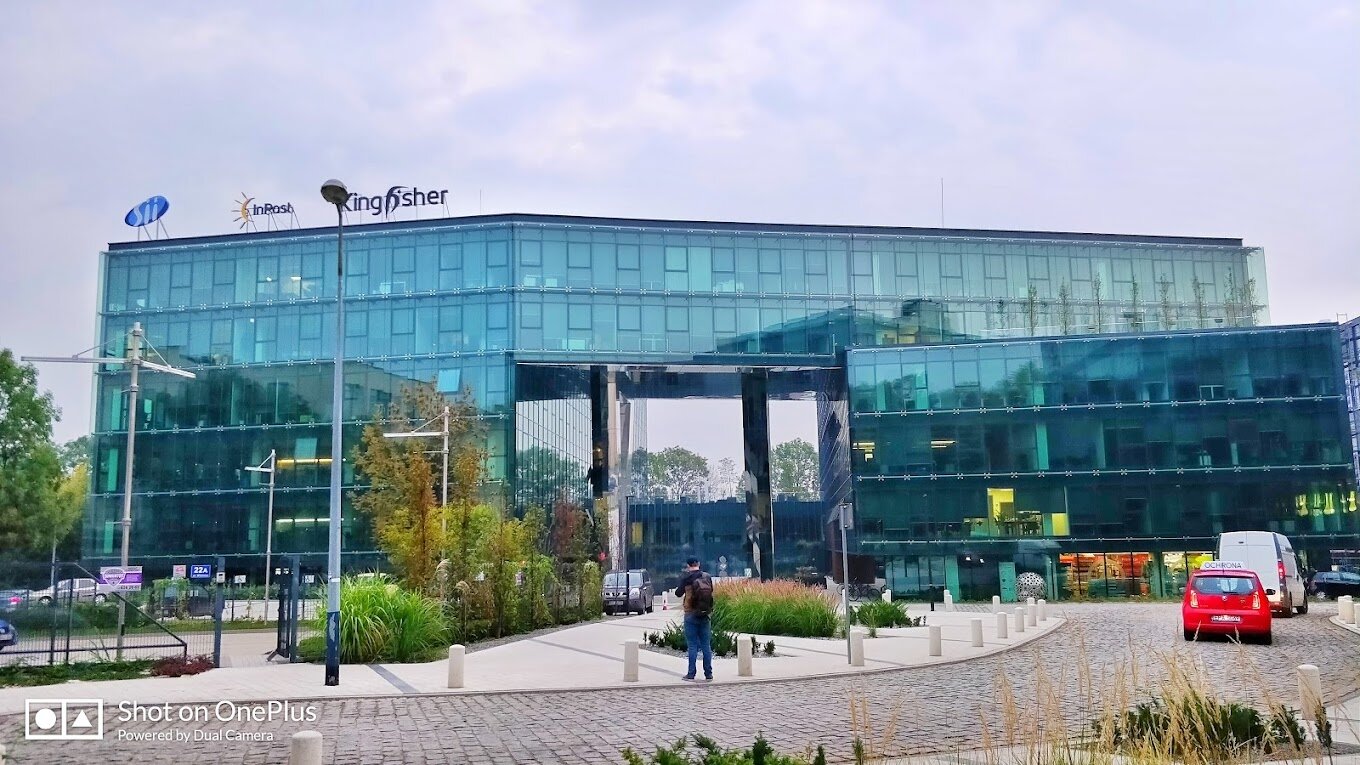
Address of the office in Poland: Biuro 315, Regus Equal Park 3rd Floor, Wielicka 28, 30-552 Kraków
Don't waste time - choose our company for a successful start in Poland. We know how to make your business competitive in this market!
For a successful start in Poland, please contact us:
📞 Phone: 0 (800) 750-751
📧 E-mail: [email protected]
How a website audit can transform your business

A website audit is not a simple check, it is a necessity that allows you to deeply understand both the technical and marketing aspects of your site. Is your website optimized for search engines? Does it communicate effectively with your potential customers? The answers to these questions can radically change your approaches and strategies. Ordering a website analysis can reveal hidden issues that are holding back your site's lead generation and customer acquisition potential. Whether you're looking to improve your site's search engine rankings or increase user satisfaction, an audit can provide you with the tools and guidance you need.
We will look at how a carefully prepared audit can significantly improve your website and make it more competitive. We will discuss what aspects of a website are checked during an audit, what benefits it can bring to your business, and how you can order a website audit from professionals to ensure the best results.
Why does your business need a website audit?
Excellent website usability is not just a nice bonus, but a critical condition for ensuring online success. A website audit allows you to analyze in detail how conveniently and efficiently users interact with your site, and how this affects your business's ability to achieve its goals. Here are some reasons why it is important:
- Increase user satisfaction: An audit reveals navigation and interface issues that may prevent users from easily and intuitively finding the information they need or performing the actions they want on your site. Improving these aspects can significantly increase your visitors' satisfaction.
- Reduce bounce rate: When users find it difficult to navigate the site or perform the necessary actions, they are more likely to leave the site without converting. An audit helps to identify and fix design elements that can lead to a high bounce rate.
- Increase conversions: Website optimization can have a direct impact on your conversions. For example, simplifying the checkout process or improving the visibility of a call-to-action button can significantly increase the number of successful transactions.
- Search engine optimization: SEO audit and optimization is part of the overall website audit and focuses on aspects that affect your website's visibility in search engines. Analyzing keywords, meta tags, URL structure, and other SEO practices will help to push your website higher in search results.
- Improving accessibility: The audit also assesses how accessible your site is to people with disabilities. Ensuring accessibility not only expands your target audience, but also emphasizes your responsibility as a business.
- Optimization for mobile devices: Nowadays, it's important that your website is optimized for mobile users. An audit will help ensure that your website works efficiently on all types of devices, improving the overall user experience.
Ensuring a high quality website is an investment in customer satisfaction and the efficiency of your online space. Ordering a professional audit can help you identify critical issues and resolve them before they negatively affect your business. You can read more about SEO promotion in the article "Features of SEO optimization of an online store"
How the audit is conducted and what we offer
Website audit is a complex process that includes several key stages. Each stage has its own specifics and requires a detailed approach. Our team of specialists uses advanced technologies and techniques to ensure the highest quality of services. This is how we work:
- Audit planning: First of all, we identify your business goals and website features. This helps us to prepare a personalized audit plan that takes into account all the necessary aspects: from technical analysis to user experience assessment.
- Technical audit: At this stage, we check the technical component of the website: coding, information architecture, compliance with SEO and web accessibility standards. We identify technical errors that may prevent the site from being indexed by search engines or impair overall performance.
- User experience (UX) audit: We analyze how visitors interact with your website and evaluate the usability of the interface. In this context, we can also put a heatmap on the site. Heatmaps allow you to visualize where users click most often, how long they stay on certain segments of the page, and how they scroll through the page. This is very useful for improving page structure and content.
- Report and recommendations: At the final stage, we compile a detailed report that includes all the issues we found and specific recommendations for fixing them. We provide practical advice that can be implemented quickly to improve your website.
- Support and optimization: After the audit, we also offer website maintenance and optimization services. This can include regular updates, monitoring of website performance, and additional checks for compliance with changed requirements or technologies.
Our goal is not just to identify problems, but to provide you with the tools and knowledge to solve them effectively, so that your website not only works at full capacity, but also helps you grow your business.
Glyanec provides professional website audit services that include technical audit, usability testing, SEO optimization, and analysis of your website's accessibility and security. We use advanced tools, such as heatmaps, to analyze user behavior in depth, allowing us to offer targeted and effective solutions for each client.
If you want to ensure that your website functions at the highest level, meets all modern requirements, and works as a powerful tool for your business, contact us. Order a website audit in Glyanec today and take the first step towards improving your online space. We guarantee a professional approach and dedication to achieving your business goals.
What are the advantages of websites over mobile apps?
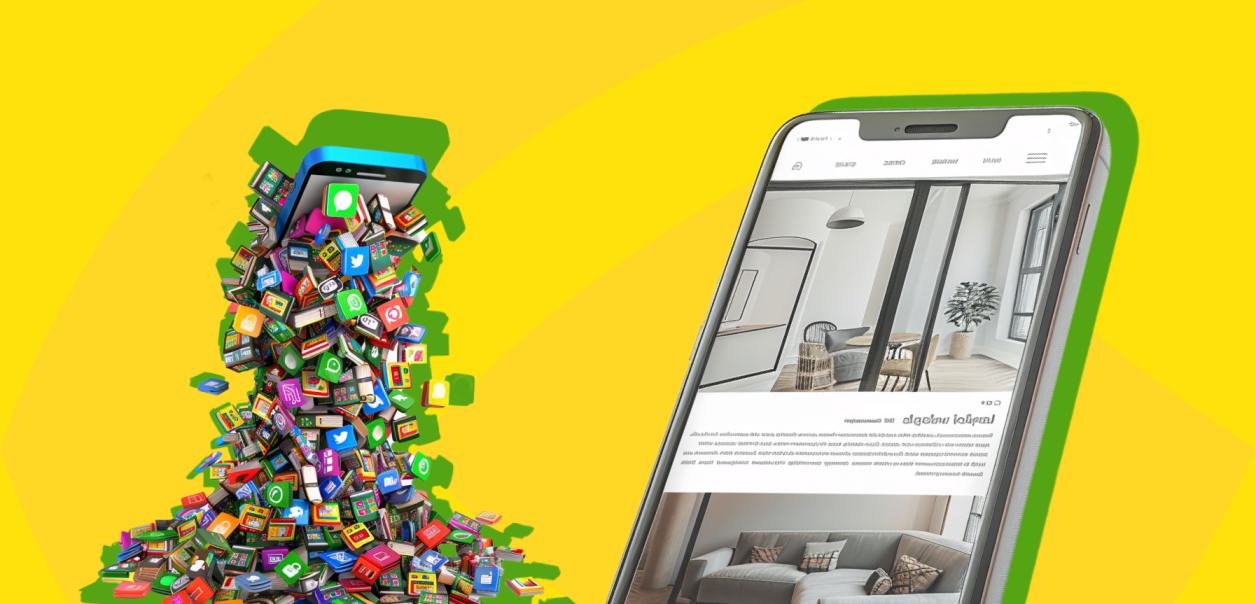
Different companies are faced with the choice between developing mobile apps and websites every day. While mobile apps may seem convenient and innovative, it's important not to ignore the numerous advantages of websites. Ordering a website is not just an investment in an online presence, but a strategic decision that can significantly reduce development and maintenance costs, provide a wider audience reach, and improve search engine rankings.
We'll take a closer look at why websites compare favorably to mobile apps, analyzing their functionality, accessibility, and maintenance costs. The importance of websites in today's digitalized landscape cannot be underestimated, as they play a key role in attracting customers, expanding the market, and optimizing the user experience.
What is a website and a mobile application?
Websites and mobile apps play vital roles in promoting a business, but they have significant differences. A mobile app is a program downloaded and installed on a mobile device that can use the phone's system capabilities, such as a camera, GPS, or gyroscope. They can offer a more personalized experience, but they require significant investment to develop and maintain.
Therefore, choosing between website development and in-house development usually turns out to be a more profitable and effective solution.
Main advantages of websites
Websites offer a number of benefits that make them an attractive choice for businesses of all sizes. Let's take a look at a few of the key benefits you should consider when considering a website for your business.
- Universal access: One of the main advantages of websites is their accessibility. Visitors can access your site from any device that has an Internet connection, regardless of the operating system. This provides a wide audience reach and the ability to attract more potential customers.
- Cost-effectiveness: Ordering a website is often much cheaper than developing a mobile app. The cost of developing and maintaining a website is lower because you don't need to create separate versions for different platforms, such as iOS and Android. In addition, updates and changes to the site can be implemented faster and easier, which reduces overall maintenance costs.
- SEO and marketing benefits: Websites provide better opportunities for search engine optimization (SEO). This means that your website can rank higher in search engines, increasing the chances of being discovered by potential customers. Optimizing your website for search engines helps to increase its visibility and attract more organic traffic.
- Improving the user experience: Websites can offer a rich and user-friendly user interface that is adapted for different devices, including mobile phones, tablets, and desktops. With a responsive design, users can easily navigate the site, which improves the overall user experience and can increase conversion rates.
With these benefits in mind, building a website is a rational choice for businesses looking to maximize the benefits of their online presence. Not only do websites save money and resources, but they also provide ample opportunities to scale and grow your business.
Why do users abandon mobile apps?
Despite the significant development of mobile technology and the increase in the number of available apps, many users still prefer websites. This is due to a number of reasons that point to certain disadvantages of mobile apps and limitations that can affect the user experience.
Most users do not see the need to install mobile applications when they can easily access the same services or information through a website on their laptop or smartphone via a browser. This is especially true for those services that users use infrequently or sporadically.
Additionally, users emphasize that mobile apps often take up too much space on their devices, which can be critical for those with limited storage space. There are also concerns about battery and mobile data consumption, especially when apps are running in the background or transferring large amounts of data.
Privacy and security issues
One of the biggest concerns that pushes users away from mobile apps is the issue of privacy and security. Many apps require extensive permissions to access personal information such as contacts, location, social media data, and even personal files, which raises concerns among users about how this data is collected, stored, and used. There is also a fear that mobile apps may be vulnerable to hacking, especially those that store sensitive financial data or personal information. Data breaches at large companies that have made headlines only reinforce these concerns.
These factors contribute to the fact that many users prefer to use websites that do not require a download and provide quick access to services without the need to install resource-consuming applications. This confirms that websites can be a more convenient and secure solution for many users. However, for many companies, creating a website will prove to be the most optimal solution to effectively attract customers and provide high quality service with minimal costs and complexity.
To summarize, a careful choice between website and mobile app development should be based on the specific needs of the business, its target audience, and available resources. However, for many companies, ordering a website will prove to be the most optimal solution that allows them to effectively attract customers and provide high quality service with minimal costs and complexity.
What are progressive web applications and what are their advantages

Progressive Web Applications (PWAs) are changing the way we think about what websites can do. This technology combines the best of the web and mobile applications, offering speed and usability that was previously only possible in apps. In this article, we'll take a closer look at what progressive web apps are, what technologies are behind them, their benefits, and key implementation considerations. We will pay special attention to how progressive web applications can transform your business by providing a better user experience and increasing productivity.
What are progressive web applications?
Progressive web applications are a type of software that is split into a website and a mobile application. This allows users to install web applications on their devices and use them in a similar way to regular mobile applications. An important feature of PWAs is that they use web browser technologies but offer functionality that is usually associated only with mobile applications.
The PWA concept was first introduced by Google in 2015. The goal was to make the web experience as convenient and fast as possible. Since then, the technology has gained significant development and support, especially from companies seeking to improve the mobile user experience without losing the versatility and accessibility of the web.
Technologies used in advanced web applications
Progressive web applications use a number of modern web technologies to provide users with an experience that is as close as possible to mobile applications. The most important of these technologies are:
- Service Workers - scripts that run in the background, independently of the web page, and allow you to manage network requests, cache resources, and use push notifications.
- Manifest file - a JSON file that allows developers to install a web application on the home screen, set the icon and the start screen.
- Using HTTPS - ensuring the security of user data and the reliable operation of web applications.
Why progressive web applications are better than traditional sites
Improving the user experience
Progressive web applications are characterized by extremely fast loading speeds and high responsiveness, which is ensured by data caching and intelligent management of network requests. This means that users are able to access content instantly, regardless of the quality of their Internet connection, which significantly improves the overall user experience.
Offline access and support for push notifications
One of the defining features of PWA is the ability to work offline. This is achieved thanks to Service Workers technology, which allows web applications to cache important content and provide access to it without the need for an Internet connection. In addition, PWAs can use push notifications to inform users about news, updates, or special offers even when they are not using the web application.
Increase engagement and conversion rates
Thanks to better user experience and offline capabilities, PWAs demonstrate high rates of user engagement and increased conversions. The ability to load quickly and run smoothly on any device ensures higher customer loyalty and a higher likelihood of completing targeted actions, such as making a purchase or filling out a contact form.
Steps to implement progressive web applications in your business
Implementing progressive web applications may seem daunting, but with the right approach, the process can be efficient and smooth. Here are the basic steps to integrate PWA into your business:
- Audit the current state of the website - check if your site is ready for conversion to PWA. This includes ensuring HTTPS compatibility, site responsiveness on different devices, and the availability of all necessary technical aspects.
- Developing and configuring Service Workers is a key component of PWA that allows the website to work offline and use push notifications.
- Creating a web app manifest - a manifest allows users to add your app to the home screen of their devices, providing easier access and a more native experience.
- PWA testing - ensure that your PWA works properly across all devices and browsers, with special attention to offline mode and loading speed.
- Monitoring and updating - once your PWA is up and running, it's important to keep it up to date and make updates to resolve any issues or improve functionality.
To illustrate how easily and quickly users can install a progressive web application on their devices, we have prepared an animated GIF. This GIF shows the process from the moment a user visits a website to the moment they install the web application on the home screen of their mobile device. This demonstrates the simplicity and ease of use of PWAs, as well as their ability to offer a native experience through a web browser.

Progressive web apps are a powerful tool for business development, offering speed, convenience, and an enhanced user experience comparable to native mobile apps. They allow you to achieve a high level of customer engagement, provide the ability to work offline and send push notifications, which is critical in today's dynamic market. Thanks to their ease of installation and efficiency, PWAs can significantly increase conversion rates and improve the overall user experience.
If you're looking for a way to make your web experience more efficient and engaging, progressive web applications can be a great solution. Remember that proper implementation and ongoing updates are essential to the success of any technology solution. Don't hesitate to bring in professionals to help you optimize your website to turn it into a responsive web app and take full advantage of its capabilities.
Virtual fitting rooms in online stores: how artificial intelligence is changing shopping

In a world where technology is changing every aspect of our lives, online shopping has become one of the fastest growing areas. However, despite all the convenience that shopping from home offers, there is one problem that still makes many shoppers hesitate before clicking the "buy" button: the inability to try on clothes before buying. This is where innovative technologies, such as virtual fitting rooms, come into play, promising to revolutionize the way we buy clothes online.
Virtual fitting room is a cutting-edge technology that uses artificial intelligence and machine learning to allow customers to try on clothes virtually before making a purchase. This innovation has the potential not only to provide a better online shopping experience, but also to fundamentally change the entire retail sector.
Our company is closely monitoring this area of technology and expects its rapid development in the near future. We believe that the integration of such innovations will not only increase customer satisfaction, but will also significantly improve the efficiency of online stores by reducing the number of returns due to mismatched sizes or appearance of goods.
Evolution of virtual fitting rooms
From early experiments to today's advanced systems, virtual fitting rooms have come a long way. Initial attempts to implement digital solutions for trying on clothes were criticized due to poor visualization quality and limited functionality. However, with the advent of advanced artificial intelligence technologies and improved image processing algorithms, virtual fitting rooms are becoming much more accurate and useful for the end user.
The key to the success of virtual fitting rooms lies in the use of a range of technologies. This includes computer vision, artificial intelligence, machine learning, and image processing algorithms. These technologies allow to analyze users' photos in real time, adapting clothes to their body parameters. In addition, advanced interfaces ensure that these systems are intuitive and easy to use.
Benefits for consumers and businesses
Virtual fitting rooms offer significant benefits for both customers and store owners. For consumers, it is an opportunity to visually assess how the clothes will fit them without having to visit a physical store or wait for the goods to be delivered. This significantly increases customer satisfaction and reduces the number of returns. On the other hand, retailers are able to attract more customers by offering a unique shopping experience and reduce the costs associated with handling returns. As a result, virtual fitting rooms not only boost sales but also improve business sustainability.
Online fitting - how does it work?
Integrating a virtual fitting room into a website requires a comprehensive approach that includes the development or implementation of specialized software. This software uses artificial intelligence algorithms to analyze user-entered data, such as body measurements, or even real-time photos or videos to create an accurate virtual image on which to "try on" clothes.
Artificial intelligence plays a key role in the functioning of virtual fitting rooms, as it analyzes and processes user data to create an accurate three-dimensional model. Such systems can recommend the most suitable size of clothing, taking into account not only the size but also the personal preferences of users regarding the fit of clothing. The introduction of virtual fitting rooms is changing not only the way people buy clothes, but also the overall online shopping experience. Customers are able not only to visually see how the clothes will look on them, but also to experiment with different styles and colors without the need to physically visit the store. This interactive approach can greatly enhance the user experience, increasing shopping satisfaction while reducing the likelihood of returning an item due to a failure to meet expectations.
Advantages of online clothing fitting
The use of online clothing fitting technologies brings significant benefits that affect both the consumer experience and the efficiency and sustainability of retail business models. Let's look at the key aspects of these benefits:
Reducing the number of product returns
One of the biggest challenges for online retailers is the high number of returns, which is often due to mismatches in sizing or customer expectations of how the product looks. Online clothing fitting can significantly reduce this risk by giving customers a better understanding of how the clothes will fit them, which in turn leads to more confident purchases and fewer returns.
Increasing customer satisfaction and loyalty
Enhancing the online shopping experience through a virtual fitting room helps to increase overall customer satisfaction. Interactivity and personalization of purchases strengthen the relationship between brands and their customers, encouraging repeat purchases and increasing loyalty.
Impact on environmental friendliness and business sustainability
Reducing the number of returns not only improves economic efficiency for businesses, but also has a positive impact on the environment. Reducing the need to transport returned goods helps to reduce the carbon footprint of companies, making them more sustainable and environmentally responsible.
The future of the fitting room for an online store
One of the main trends is to improve the accuracy and interactivity of virtual fitting rooms through the expanded use of artificial intelligence and machine learning. This includes the development of algorithms that can analyze the more subtle nuances of users' figures, as well as integration with virtual and augmented reality to create a more immersive fitting experience.
Artificial intelligence not only improves virtual fitting rooms, but also opens up new opportunities for personalizing fashion offers. This can include automatic clothing recommendations based on previous purchases, lifestyle, and personal preferences, which will significantly improve the user experience and shopping efficiency.
By closely following these trends and actively experimenting with virtual fitting rooms, our company strives not only to optimize our customers' experience, but also to act as an integration leader in the market. Recognizing the importance of these innovations, we are confident that the further introduction and development of virtual fitting rooms will not only contribute to the growth of our company, but will also play an important role in shaping the future of online retail by making shopping more convenient, personalized and sustainable.
What is the importance of ISO certification for a website and how does it increase trust and recognition?
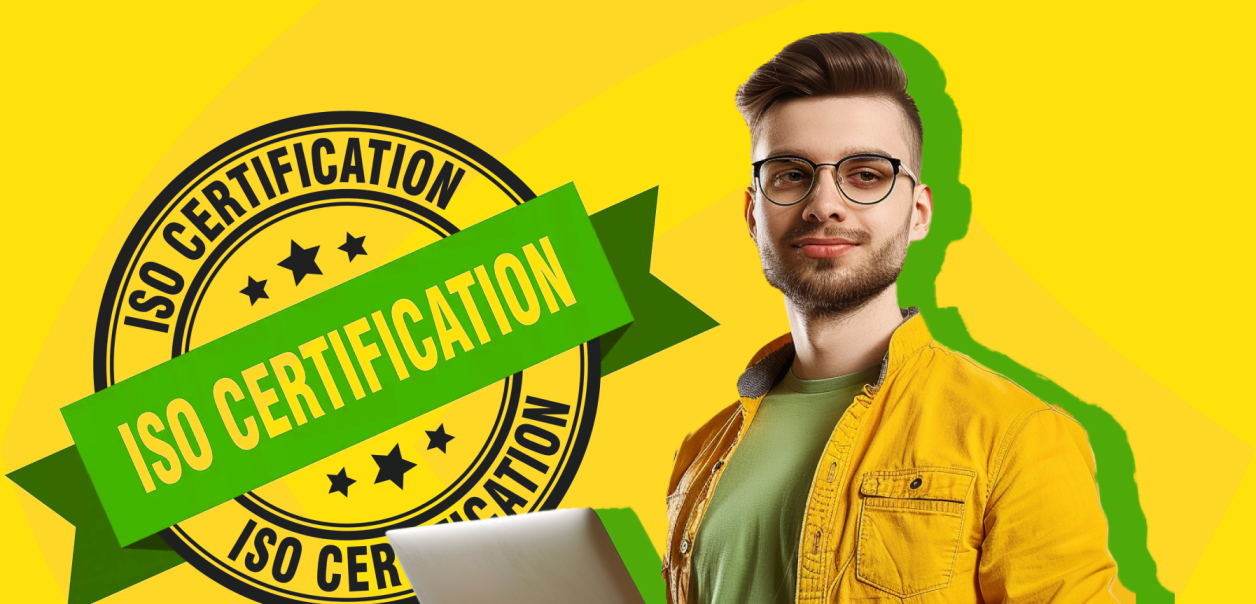
Every day, online security is becoming more and more important for businesses and their customers, and ISO certification is a key tool to ensure that websites are trusted and recognized. ISO certification for a website is a set of standards designed to guarantee quality, safety, and reliability, and can be a decisive factor in consumers' choice of online retailers and other online platforms. So why is ISO certification important for websites and how can it enhance their appeal to users?
In this article, we'll look at the basics of ISO certification, what it means for websites, the specific criteria a website must meet to get certified, and provide practical tips on how to prepare for the certification process. Through a real-life case study of Bogomolets Clinic, where their website was successfully certified, we demonstrate how ISO can increase rankings and user confidence in practice.
What is ISO certification?
ISO certification is a process whereby an independent organization verifies and confirms that a company's management systems comply with established international standards. Developed by the International Organization for Standardization (ISO), these standards cover various aspects of operations, from product and service quality to safety and environmental management systems.
For businesses operating in the digital world, ISO certification is a significant asset. It not only demonstrates high standards of management and operations, but also inspires trust among consumers and partners. Companies with ISO certification are generally perceived as more reliable and secure, which is especially important when choosing an online service provider. ISO is an indicator of a responsible and transparent approach to information management. Such certification can significantly enhance the reputation of a website, thereby increasing its attractiveness to potential customers and investors.
ISO certification is a powerful marketing tool. It shows potential customers and partners that the company controls the quality of its services and ensures reliable protection of information and data, which is especially important for e-commerce and other online services. It emphasizes the company's commitment to the highest standards, which helps to build long-term relationships with customers and increases overall brand recognition in its niche.
The main ISO criteria for websites
ISO standards applicable to websites focus on several key aspects: quality of management, information security, and service reliability. Particular attention is paid to ensuring the protection of users' personal data, which includes data encryption, secure information transfer, and access control systems. For example, ISO/IEC 27001 is a standard that sets requirements for information security management systems, including aspects related to website security.
The reliability of websites during the ISO assessment is determined by their ability to operate stably and securely, performing the prescribed functions and meeting the needs of users. Important elements include the absence of errors on the site, page loading speed, the effectiveness of interactive features, as well as regular content updates and technical support. Standards such as ISO 9001 can be used to assess the overall quality of website management and development processes, ensuring that they meet international requirements.
The application of these standards helps companies not only improve internal processes, but also ensure that their websites are able to effectively serve their customers, increasing their overall satisfaction and loyalty. Compliance with international ISO standards, therefore, becomes a significant step in the development and growth of a company, strengthening its position in the market and in the eyes of consumers.
The story of our client - Bogomolets Clinic, and their experience with the website
Bogomolets Clinic, located in Kyiv, is a recognized company in the field of dermatology and dermato-oncology. It provides a comprehensive range of medical services, including diagnostics and treatment, as well as aesthetic medicine and oncology services. Thanks to modern equipment and a highly qualified team of specialists, the clinic also actively uses telemedicine to provide access to its services to a wider range of patients.
In light of its commitment to its clients and its desire to provide the highest quality services, Bogomolets Clinic decided to become ISO certified. This step was particularly important as it ensures the protection of their patients' confidential medical data.
The certification process confirmed that Bogomolets Clinic 's website met all the requirements of the standard and received the highest marks, which earned well-deserved praise from the auditors and emphasized its role as a key element in ensuring customer trust and confidence. This not only strengthened the clinic's reputation as a medical institution, but also significantly increased patients' confidence in the quality and safety of the services provided to them.
Steps to achieve certification for websites
Preparing for the ISO certification process for a website requires detailed planning and dedication. First of all, a company needs to determine which specific ISO standards they want to implement. These are often standards related to management quality (ISO 9001), information security (ISO/IEC 27001), or risk management (ISO 31000). Each of these standards has its own specific requirements, so it is important to clearly understand what they entail and what resources are needed to fulfill them.
After selecting the standards, you should audit your existing website management processes and systems. This will help identify potential problem areas and determine what changes need to be made to meet the standards. A key element is to establish a quality management system that includes regular audits, process documentation, and continuous improvement.
Practical tips for passing certification
- Involvement of internal and external stakeholders: It is important that all key team members are aware of the certification process and understand their roles in the process. Engaging external consultants can also help ensure objectivity and professionalism during the audit.
- Detailed documentation: All processes, procedures, and changes that have been implemented to meet the standards should be thoroughly documented. This will not only simplify the audit process, but will also help to quickly identify and resolve potential problems in the future.
- Conducting internal audits: Regular self-audits help to ensure that all aspects of site management are compliant with ISO requirements. It also allows the team to become accustomed to audit procedures and can significantly reduce stress during a formal audit.
- Continuous improvement: Obtaining ISO certification is not a one-time process, but an ongoing commitment to maintaining and improving management systems. Continuous monitoring and updating of processes in accordance with new technologies and standards are essential to maintain certification.
ISO certification for websites is not just an added value for modern businesses - it is a crucial factor in ensuring the trust, security and survival of a company in a highly competitive environment. Consumers are increasingly paying attention to the transparency and security of an online presence, and having ISO certification can significantly increase customer trust, strengthen brand reputation, and give a company a real competitive advantage.
Through the example of Bogomolets Clinic, which received the highest rating for its website, it is clear that ISO standards provide not only internal organization and efficiency, but also external recognition and market success. Implementing and maintaining these standards requires effort and resources, but they pay off with significant long-term benefits. Given the dynamic development of technology and changing market conditions, flexibility and readiness to adapt are key to ensuring continued success and security in the digital space.
What is a business card website and who needs it?

A business card website is an opportunity to briefly and as meaningfully tell Internet users about yourself and your brand. In fact, this is a virtual business card of a company, project or specialist who offers its services. In this article, we will talk about features of such an online resource, as well as who needs it and why.
Structure business card site
The main feature of a business card website is its simplicity and brevity. The purpose of creation is to provide users with important information about you or your business in order to introduce potential customers to the brand or its services.
He can be in landing page format, but more often it contains 2–5 pages. Each of them is a separate section containing information about the company (brand), services, portfolio, contact information, and possibly other important information.
The content of the resource informs users who is in front of them, what activities they are engaged in and what product they offer. How to order site-business cards are often sought after by specialists who provide certain types of services. These are photographers and videographers, interior designers, translators, psychologists, confectioners, lawyers, presenters and organizers of events, shoe or clothing repair shops, studios of web design etc.
Basic elements of a business card website
HOMEPAGE
This is the first page of the site that a visitor sees. It contains basic information about you or your business. The content and design of the home page should not only attract, but also retain, the attention of the site visitor. A good headline helps you achieve your goal.a short but most informative description of the activity, services, photos or videos that visually present you, a project or a product.
SERVICES
If services are simply listed on the main page, they need to be presented in a thematic section: describe them in text, add a photo or video with an overview, post prices, terms of service, etc. It is also important to describe the benefits that clients receive from working with you. For example, these are discounts and bonuses for regular customers, a free trial period for using a product, warranty service, etc. Demonstration of additional benefits of a product or cooperation always attracts attention!
PORTFOLIO
An informative portfolio can significantly increase the effectiveness of a business card website. Especially in the case when the visual presentation of services (or achievements) directly influences the choice of potential clients (confectioners, interior designers, makeup artists, etc.).
What will help you create an effective portfolio:
- Select the most representative work or projects that best demonstrate your professional skills, style and talent.
- If necessary, divide your work into categories or project types. This will help visitors to your business card website quickly find exactly what interests them.
- Create a slideshow or gallery for each category. Use images or videos that best represent your work.
- If you already have professional achievements or awards, tell us about it. This is a convenient way to demonstrate your expertise and skills to potential clients or partners.
CONTACTS
On this page, post your work schedule, provide your email address and phone number. And also the office address, travel map (preferably interactive). Add a link to your social media profiles(YouTube, Instagram, Facebook, TikTok etc.). Place your form here, feedback through which we can contact you.
Additional blocks
Depending on the type of activity, you can also place customer reviews, recommendations from business partners, news, a blog, frequently asked questions, etc. on the pages of your business card website.
CUSTOMER REVIEWS
Integrate reviews from Google into your website, add screenshots or videos with reviews of satisfied clients. There's no point in talking about what to use only real reviews: the audience will immediately identify fictitious ones, so you shouldn’t spoil your reputation. A block with reviews and perhaps recommendations from partners, most often placed on the Home page or on the page describing services.
BLOG
If a service provider regularly blogs, reports news that may be of interest to customers, this increases the level of trust in the company or entrepreneur, demonstrates a desire to build a customer-oriented business and active communication.
For example, lawyers review new legislation, hairdressers review hair care products, photographers provide advice on image processing, equipment selection, etc.
FREQUENTLY QUESTIONS
Thanks to the information in the Frequently Asked Questions (FAQ) section, you can tell more about your activities, processes, conditions, capabilities, etc. Thanks to the FAQ, customers can quickly find answers to their questions. For example, you can immediately find out how long development takes online store. It saves time and has a positive impact on the brand experience.
Besides, this section allows improving website SEO: in text FAQ, there may be keywords and phrases that your audience most often searched for information on.
Overall, a business card website can increase audience trust in your company or personal brand. Its presence indicates that you work openly, transparently, and professionally. And this can be a decisive factor in choosing your business proposal over your competitors.
Who needs business card site
Freelancers working in different fields — designers, copywriters, confectioners, lawyers, cosmetologists, makeup artists, etc. It is important for such specialists to have their own website to present services, provide a portfolio and contact information.
Professionals in the field of education and creativity. Teachers, trainers, photographers, writers, artists, musicians and other professionals can tell their biography on the pages of a business card website, present their works, projects, courses, etc. For them, such a site is truly an online business card demonstrating experience, achievements, and a complete portfolio.
Small business and startups. Small companies, new startups and entrepreneurs also need a platform to present their products or services, attract customers, increase online presence and improve competitiveness in the market. A business card website allows them to quickly and efficiently notify inform the audience about special offers, promotions, and inform about the achievements of your business.
Personal brands. Bloggers, influencers, public figures and others use a business card website to present their activities, ideas, and achievements. For them, this is one of the tools for support and promotion of personal brand.
Event organizers. Organization Experts events, exhibitions, fairs, conferences, etc. use a business card website to advertise and promote their services, talk about successfully held events, and also for registration of participants. For event organizers, a business card website can be a powerful tool for attracting new clients and improving their reputation.
As you can see, a business card website is a tool that allows you to briefly but informatively tell about yourself, a company or a project. You can create it yourself using a website builder or order it from professionals. By choosing the second option, you will receive a high-quality website that will help you present your services more effectively and attract more clients or partners.
Why you should order a business card website from professionals
- High quality design and technical expertise. Qualified specialists have experience in creating fast, functional websites with a modern design and know exactly how to create an effective Internet resource that meets exactly your needs, goals and expectations.
- Search engine optimization (SEO). Pros understand the importance of website optimization to ensure high rankings in search results. They can perform the necessary SEO settings for your business card website, as well as effective online store promotion, which will help attract more customers.
- Adaptive design. Professionals develop websites adapted for different devices and screen sizes so that your website looks attractive on any device - computer, tablet or smartphone.
- Support and service. If you decide to order a business card website or create an online store Va specialized company, you will be provided with technical support and maintenance so that your website is always up-to-date and functional.
Conclusion
A business card website is an important tool for presenting the services of a company or personal brand. It provides important information about you or your business, helps attract new clients or partners, and maintain contact with your audience. It is better to order a business card website from professional web resource developers. Such companies offer an individual approach to creating an online resource that 100% meets your needs and helps attract the maximum number of visitors to the site.
Tools for brand promotion

A brand is more than just a logo or company name. This is a complex and conceptual image created in the imagination of consumers based on their impressions, feelings and experiences with the company's products or services. Creation and brand promotion are interconnected processes, the effectiveness of which affects on the success of the business as a whole.
In this article, we will look at the benefits of a strong brand and talk about tools that can help you increase awareness and improve your brand reputation.
What influences brand formation
Creation and formation of a brand is the process of developing and implementing a unique identity for a company or product that ensures that it is perceived by customers. This is a multi-component process that involves developing a strategy, defining values, creating an image, building a communication policy and working on reputation.
Key components of brand formation:
- Developing a unique identity and value proposition— key elements of creating a successful brand. First, you need to build a clear strategy, form mission, values and goals of the brand. And also determine ways to achieve competitive advantages that will distinguish the brand from others and attract the attention of consumers. It could be product quality, innovation, customer service, pricing, or any other factor that makes your brand special.
- Identity creation (a unique visual brand identification system) - an external image that distinguishes the brand from competitors in the eyes of customers, employees and society: logo, graphic style, color, fonts and font pairs, melodies in advertising, etc.
The main task of identity is for the brand image to be imprinted in the memory of consumers and for them to immediately recognize the company and its products on any medium.
- Developing an effective communication strategy for interaction with the audience, including content marketing, advertising, PR, social media and other channels. The tone and style of communication with the audience, the quality of content and methods of interaction influence the perception of the brand and shape its image.
- Creating a positive and unforgettable experience for customers at all stages of interaction with the brand, from first contact to after-sales service. This is exactly the experience of our clients who are interested in professional online store development.
- Supporting and strengthening a positive brand image by carefully managing reputation, customer feedback and crisis response.
- It is important that messages about the brand and its image were consistent (repeated each time following the same rule) on all channels and interacted with the audience to enhance brand awareness and maintain its recognition.
- Creation of loyalty program sand getting customers to participate in them to maintain a long-term relationship with the brand.
Continuous improvement and adaptation of the brand to changes in market conditions and audience needs, as well as the introduction of innovative ideas and technologies.
The combination of these components helps to create a strong and recognizable brand with many customers, the number of which is constantly growing due to increased loyalty and satisfaction of regular customers and more active attracting new.
Benefits of a strong brand
- Customer loyalty. An influential brand drives customer loyalty because it builds trust and a sense of connection between the brand and the consumer. For an e-commerce business, the foundations of these processes are laid at the stage of creation of online stores.
- Increase product values. A company with a strong brand can charge higher prices for its products or services, which allows it to generate more profits and maintain a competitive advantage.
- Less sensitivity to price fluctuations. A strong brand allows a company to be less sensitive to changing economic conditions and price fluctuations because customers tend to choose its products or services.
- New products are more likely to succeed. New products or services from a well-known brand with a good reputation have a higher probability of success in the market, which creates conditions for business expansion.
- Impact on the market. Creating a strong brand allows a company to have greater influence in its niche market, shape trends and manage industry development. For example, we offer our clients to create an online store with a unique set of features that allows them to be better than their competitors.
In general, brand creation is a strategically important element of the success of any business, helping to ensure stable development and competitiveness in the market.
Main platforms for brand promotion
Website
Own in the website — one of the most important tools for brand promotion. Online presence is key to building an attractive brand image that you can trust. Website -an accessible and effective platform for creating an information base for customers and opportunities for online sales 24/7.
Order a site with unique design and easy navigation will help you present your business as best as possible brand vision, demonstrate business identity, provide unique content and convenient communication tools. Uninstalling analytical tools on a website allows you to track and study user behavior on the website, receive reports on traffic, conversions and other metrics, which is a necessary component of building an effective marketing strategy.
Blog
Thanks to the publication of interesting with useful and informative content on your blog, you can show your expertise and value and share your knowledge. This helps increase your audience's trust in your brand and allows you to position your brand as a leader in its field.
Yes, we recently blogged about how Glyanec company has become Google Certified Partner. It confirms high efficiency and professionalism of our team in the field of Google advertising. We have access to innovative tools and useful resources, so we can now run even more successful advertising campaigns for projects of our clients.
A blog can also become an effective channel for presenting new products and services and announcing promotions. Here it’s easier to talk about the features of your products, share user impressions, give tips on use, etc.
A properly optimized blog can attract new visitors to your website. Website through search engines, which will help increase traffic and increase your brand visibility.
Social media
YouTube, Instagram, Facebook, TikTok and other popular platforms are effective for creating video content, demonstrating products, maintaining advertising campaigns, community building, training and interaction with the audience. Social platforms media provide more space for productive communication (informal and understandable to clients), help build strong connections with clients.
To use social media more effectively, it is necessary to accurately determine the purpose of attracting these channels and the available budget, and conduct an analysis of competitors and target audience. This will help you understand where exactly your target audience spends their time and how best to attract them. As a result, you will be able to find the most convenient and effective platform (or combination of platforms) for brand promotion that suits your needs and capabilities.
Additional tools for brand promotion
Attraction additional tools to enhance the work of the main platforms will increase the effectiveness of online promotion of your brand.
Email newsletter
Sending emails allows you to communicate directly with your audience: inform about new products and promotions, provide information about a company whose image meets user expectations. Through emails, it is convenient to establish contact with potential clients from your base, telling them about interesting offers. This makes it easier to arouse interest in purchasing a product or service even among those customers who did not intend to buy anything.
Search Engine Optimization (SEO)
Online store promotion, whop optimizing your website content for search engines will help increase the ranking of your online resource by improving SEO indicators. In turn, ranking your site high in search results increases its authority and user trust, which helps increase your brand awareness. Investing in optimization will increase your brand's online visibility, drive more organic traffic to your site, and attract new customers.
Contextual advertising
Paid advertising on the platforms Google Ads, Facebook Ads, LinkedIn Ads, etc. helps to attract the attention of users and expand the audience. This type of advertising is an effective tool for promoting a brand on the Internet, as it allows you to reach the target audience with maximum accuracy. Online advertising provides flexibility in placement and control over your advertising budget: you can choose to advertise campaign strategies and platforms depending on your current needs and goals.
Conclusion
The choice of an online platform for brand promotion depends on the target audience of your brand and its values, the type of products or services, budget and other factors. If you successfully adapt the set of tools to the capabilities and goals of your business, you will definitely be able to create a strong, recognizable brand.
Chatbot vs. Mobile app

By opening up new horizons of communication between brands and their customers, technology continues to influence the way companies interact with their audiences. In today's digital world, where every second counts, chatbots and mobile apps compete for users' attention by offering quick and efficient solutions to their needs. Both tools have their own unique advantages, but chatbots have become increasingly popular in recent years due to their ability to provide instant feedback and personalized service without the need to install additional applications.
This article will reveal the key aspects and advantages of chatbots over mobile applications, providing an in-depth analysis of their efficiency, usability, and impact on the business strategies of modern companies. We will consider how to order a chatbot, study the processes of creating a chatbot, and analyze real-life examples of successful chatbot implementation in various fields of activity. Given the rapid development of chatbot development technologies on Telegram and other platforms, this article will provide valuable insights and recommendations for those considering integrating chatbots into their business model.
Advantages of chatbots over mobile apps
In today's digital space, where speed and convenience are key for users, chatbots stand out for their unique advantages over mobile apps. They are becoming indispensable business assistants, providing effective communication with customers. Let's take a closer look at why chatbots can be the best choice for certain use cases.
Ease of use and accessibility
Instant access: Users do not need to download and install additional applications to interact with a chatbot. Most chatbots are integrated into popular messengers that are already installed on users' devices.Ease of use: Chatbots offer an intuitive communication interface that doesn't require much training or familiarity with new software.
The cost of creating a chatbot compared to developing a mobile application
Savings on development: Creating a chatbot usually requires less investment compared to developing a mobile app, especially if you need to support multiple platforms.Reduced development and implementation time: Chatbots can be developed and integrated into business processes much faster than mobile apps.
Speed of chatbot connection and integration into business processes
Flexibility of implementation: Chatbots are easy to integrate with existing customer service systems, CRMs, and other business tools, ensuring a smooth implementation into business processes.Automation of customer interaction: Chatbots efficiently automate standard customer requests, freeing up employees' time to solve more complex tasks.
Development of Telegram bots and other platforms as an example of flexibility
Wide audience coverage: Chatbots can be deployed on various platforms, including Telegram, Viber, Facebook Messenger, which allows you to reach a wide audience without additional efforts.Adaptation to business needs: The development of specialized chatbots, such as Telegram bots for sales or creating a bot for a website, allows you to precisely meet the specific needs of your business and its customers.
When choosing between chatbots and mobile applications, it is important to consider the specifics of the business, the goals of communication with customers, the budget, and the expected implementation time. In many cases, chatbots offer an efficient and cost-effective solution that ensures a high level of customer satisfaction and helps to optimize business processes.
Real-world examples of chatbot use
Chatbots have been used in a variety of areas, from better customer service to optimizing internal business processes. Below are some real-world examples of chatbots that demonstrate their efficiency and flexibility.
Custom chatbot for customer service
Custom chatbots have become a popular solution for businesses looking to improve their customer service. For example, banking institutions use chatbots to quickly resolve standard customer queries, such as checking balances, recent transactions, or blocking lost cards. This not only increases customer satisfaction but also reduces the workload of call centers.
Create a bot in Telegram for sales: success cases
One of the most prominent examples of chatbots is the creation of a sales bot in Telegram. Such bots allow users to make purchases directly in the messenger, offering personalized recommendations and simplifying the checkout process. The effectiveness of this approach is confirmed by the increase in conversion and sales growth.
Creating a chatbot for your website: improving user experience
Using chatbots on websites allows companies to improve interaction with visitors by providing instant answers to their questions. For example, creating a chatbot for a website can automate the process of ordering services, providing information about products, or helping to navigate the site. Such interaction not only provides a better user experience, but also increases the chances of retaining website visitors.
Order a Telegram bot to interact with the audience
Companies that order a Telegram bot often use this platform to maintain interaction with the audience, including providing useful information, organizing contests or polls. This helps to engage the community and increase its activity.
Chatbots demonstrate their versatility and effectiveness in a variety of use cases. They are becoming an integral part of many companies' strategies, helping to improve customer service, optimize internal processes, and increase sales.
Examples of chatbot usability
The convenience and efficiency of chatbots are becoming crucial factors for many companies and their customers. These innovative tools not only simplify communication with the audience, but also significantly improve the user experience by providing fast and personalized responses. Let's take a look at a few examples that highlight the usability of chatbots.
Automated responses and personalized approach
Quick response to inquiries: Chatbots can automatically respond to common user inquiries such as opening hours, product information, or order status, providing immediate support without the need for human intervention.Personalized recommendations: Using data from previous customer interactions, chatbots can provide individualized recommendations and suggestions, increasing user satisfaction and driving sales.
Integration with different platforms
Availability on popular platforms: Chatbots integrate seamlessly with a wide range of messengers and social networks, including Telegram, Viber, and Facebook Messenger, allowing businesses to find and connect with their audience where they spend the most time.Ordering a chatbot for Viber or another platform is becoming an increasingly popular solution for businesses looking to maximize their reach and improve customer service.
Efficiency in processing requests
Processing a large volume of requests: Chatbots can efficiently serve a large number of users simultaneously, which is especially useful during peak times or promotions, reducing pressure on the support team.Instant query processing: Thanks to their speed of processing and instant response, chatbots provide immediate customer satisfaction, increasing customer loyalty and brand trust.
Chatbots offer a revolutionary approach to customer interaction, outperforming traditional methods of communication due to their accessibility, speed, and personalization. They not only facilitate the customer service process, but also open up new opportunities for businesses to expand their audience and improve the efficiency of internal processes.
The future of chatbots and mobile apps
The future of business-to-consumer interactions will be heavily dependent on the further development of technologies such as artificial intelligence (AI) and machine learning, which are at the heart of chatbots and mobile apps. Let's take a look at some trends and forecasts that may determine their development in the near future.
Development trends and forecasts
Deeper integration with AI: Continuous improvement of artificial intelligence algorithms will allow chatbots to provide even more personalized and intelligent interaction with users, as well as to recognize their needs and intentions more effectively.Development of voice chatbots: With the development of speech recognition technologies, voice assistants and chatbots will become even more popular as they allow users to interact with systems in a more natural and convenient way.Unity of mobile apps and chatbots: It is possible to integrate chatbot functionality directly into mobile applications, which will combine the benefits of both technologies, offering users a deeper and more meaningful interaction.
Impact of AI technologiesAutomation and optimization of business processes: Thanks to AI, chatbots will be able to not only interact with users but also perform more complex tasks, such as automating internal processes, analyzing data, and supporting decision-making.Personalization of user experience: Improvements in machine learning algorithms will allow chatbots and mobile apps to offer even more personalized experiences tailored to each user's characteristics and preferences.
Conclusion
Taking into account the above information about chatbots and mobile apps, we can see that each of these tools has unique advantages that can be used to meet the diverse needs of businesses and their customers. Chatbots offer speed, convenience, and efficiency in communication, making them an ideal choice for automating customer interactions and improving service. Mobile apps, on the other hand, offer a deeper level of interaction and personalization, which is key to attracting and retaining users.
However, developing and implementing chatbots often proves to be a more cost-effective solution, especially for small and medium-sized businesses that may not have the resources to invest in developing complex mobile applications. On the other hand, mobile apps can offer unique experiences that go beyond the capabilities of chatbots, especially when utilizing advanced technologies such as augmented reality.
Given the rapid evolution of technology and changing consumer expectations, it is important for companies to stay abreast of the latest trends in digital interaction and adapt their strategies accordingly. The choice between a chatbot and a mobile app should be based on an in-depth analysis of business goals, user requirements, and available resources.
In many cases, the integration of both tools can provide the best results, ensuring a comprehensive approach to meeting user needs and achieving business goals. It is important to understand that in the world of digital technologies, flexibility and readiness to adapt are key success factors.
Glyanec is a Google Certified Partner!

Our team has successfully completed all the requirements to earn the Google Certified Partner badge, proving high performance and professionalism in Google advertising. This program is designed for professionals who manage Google Ads accounts. Participation in it gives access to innovative tools, useful resources and other bonuses that will enable more successful campaigns for clients.
Creating contextual advertising campaigns for all business niches is one of our key services. Google advertising is an effective tool for promoting your business online, helping to attract new customers and increase brand awareness. Professional setup of contextual advertising allows you to get targeted traffic to your website, which directly leads to increased sales of goods or services.
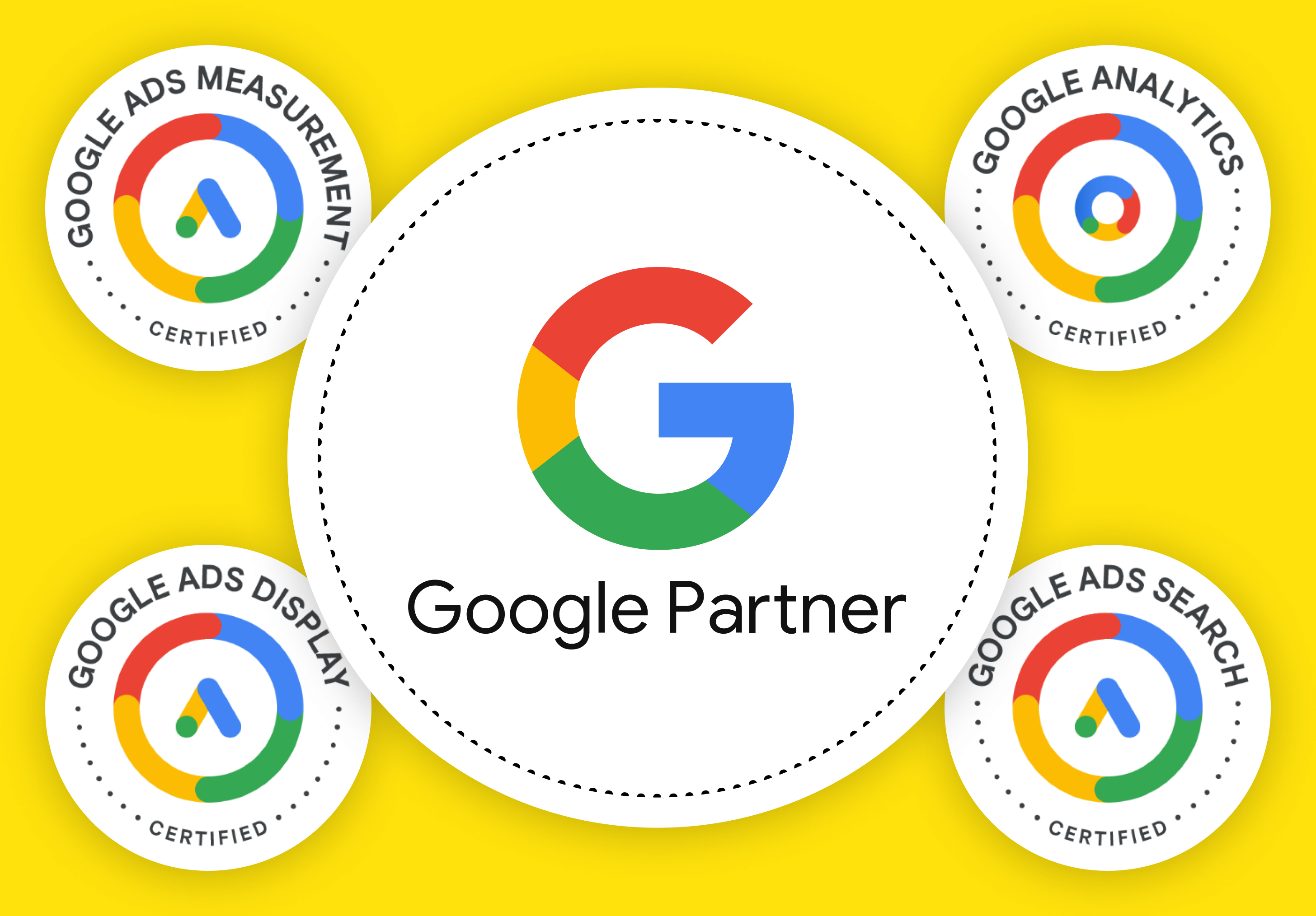
Our team always works to the best of its ability to provide our clients with the best solutions and effective strategies for all projects.
Provide your business with the best path to success — order advertising from a Google Certified Partner now!
Order a site now!
Just one step to your perfect website


